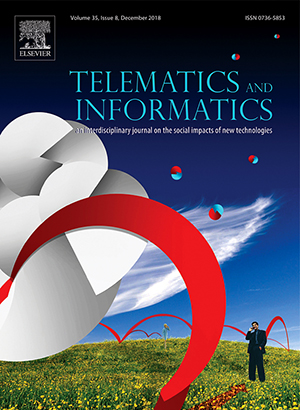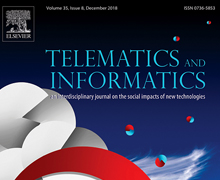본문
I hate binge-watching but I can’t help doing it:The moderating effect of immediate gratification and need for cognition on binge-watching attitude-behavior relation

By Prof. Sohye Lim (s.lim@ewha.ac.kr)
Division of Communication and Media
Professor Lim's recent work titled "I hate binge-watching but I can't help doing it: the moderating effect of immediate gratification and need for cognition on binge-watching attitude-behavior relation" was published in Telematics and Informatics. Her study investigated the nature of binge-viewing, especially in relation to the viewer’s personality traits.
The way TV is consumed is rapidly evolving to adapt to changes in platforms; broadcast and cable TV have been evidently declining, and an increase in people turning to video on demand (VOD), digital video recordings (DVR), and online streaming services to access entertainment content has become prominent. As opposed to "scheduled and synchronized" traditional television, online video platforms offer the viewer uninterrupted access to many TV series and movies, and now viewers have the opportunity to watch multiple episodes of programs in a single sitting or an entire season over the course of a few days. Binge-watching is thus becoming a new "norm" for viewers in consuming their favorite TV shows and movies.
Increasing scholarly endeavors have been made to elucidate the nature of binge-watching from various perspectives. Nevertheless, most of them remain exploratory and largely descriptive. More theoretical and empirical understanding of the antecedents and effects of binge-watching on the viewer is warranted for a better understanding of the fast-changing media landscape. This study attempted to explore the role of viewer personality traits that play on the extent and nature of binge-watching, in particular examining how binge-watchers' negative attitudes toward binge-watching are associated with the extent of the behavior. Furthermore, the moderating effects of personality traits, including immediate gratification (IG) and need for cognition (NFC), were investigated.
Specifically, this study attempted to broaden the theoretical understanding of binge-watching by (1) recognizing the inconsistency between attitude toward binge-watching and actual binge-watching behavior and (2) attempting to explain this inconsistency by adopting individual psychological traits. The results from the analysis on survey data (N=714) illustrated that there was a positive association between viewers' negative attitudes and the extent of their binge-watching, showing a signature indicator of attitude-discrepant behaviors. Furthermore, a significant interaction effect of negative attitude toward binge-watching and IG on binge-watching behavior was found. High-IG respondents with negative attitude toward binge-watching were more likely to binge-watch than their low-IG counterparts, marked by greater negative attitude toward binge-watching as guilty pleasure. Among those who were willing to wait for later larger rewards over immediate small ones, those who thought and felt negatively about binge-watching did not binge-watch; however, among those who could not resist instant small rewards, the more negatively they felt about binge-watching, the more they binge-watched. In contrast, individual NFC did not significantly moderate the relationship between negative attitude toward binge-watching and binge-watching behavior. However, it was found that NFC had a positive main effect on binge-watching behavior. IG also had a positive main effect on binge-watching behavior.

* Related Article
Hongjin Shim, Sohye Lim, Eunjean Elizabeth Jung, Euikyung Shin, I hate binge-watching but I can't help doing it: The moderating effect of immediate gratification and need for cognition on binge-watching attitude-behavior relation, Telematics and Informatics, 35 (7), 1971-1979, 2018
